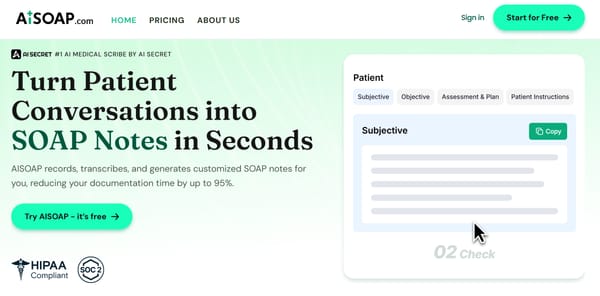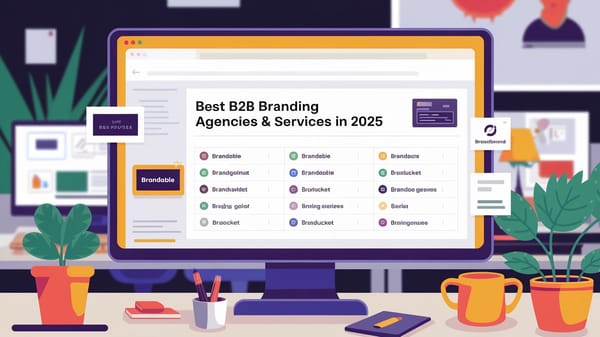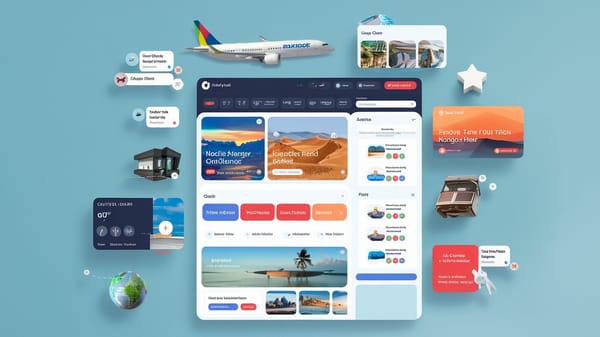Intelligent Content Automation with ChatGPT and AI Models

In the rapidly evolving landscape of digital content creation, the integration of artificial intelligence (AI) has ushered in a new era of intelligent content automation. At the forefront of this transformation is ChatGPT, a sophisticated language model developed by OpenAI, which has become a pivotal tool for automating and enhancing content generation processes. This report delves into the capabilities and implications of using ChatGPT and similar AI models in automating content creation, offering insights into how these technologies are reshaping industries and redefining the boundaries of creativity and efficiency.
Intelligent content automation leverages the power of AI to streamline the production of written material, enabling businesses and individuals to generate high-quality content at unprecedented speeds. ChatGPT, for instance, utilizes advanced natural language processing (NLP) techniques to understand and generate human-like text, making it an invaluable asset for tasks ranging from drafting articles and reports to creating personalized marketing materials. The model's ability to learn from vast datasets allows it to produce contextually relevant and coherent content, significantly reducing the time and effort traditionally required in content creation.
The implications of deploying AI models like ChatGPT extend beyond mere efficiency. They offer the potential to democratize content creation, providing tools that are accessible to a broader audience, regardless of their technical expertise. This democratization is further enhanced by platforms such as OpenAI's API, which facilitate seamless integration of AI capabilities into various applications, thereby expanding the reach and impact of intelligent content automation.
Moreover, the adoption of AI-driven content automation raises important considerations regarding the quality, originality, and ethical use of generated content. As these technologies continue to evolve, it is crucial to address challenges related to bias, intellectual property, and the potential for misuse. By understanding and navigating these complexities, stakeholders can harness the full potential of AI models like ChatGPT to foster innovation and drive growth across diverse sectors.
In summary, the advent of intelligent content automation through AI models such as ChatGPT represents a significant leap forward in the way content is created and consumed. This report aims to explore the multifaceted applications, advancements, and implications of these technologies, providing a comprehensive overview of their transformative impact on the content creation landscape.
You can also visit Oncely.com to find more Top Trending AI Tools. Oncely partners with software developers and companies to present exclusive deals on their products. One unique aspect of Oncely is its “Lifetime Access” feature, where customers can purchase a product once and gain ongoing access to it without any recurring fees. Oncely also provides a 60-day money-back guarantee on most purchases, allowing customers to try out the products and services risk-free.
Oncely are hunting for the most fantastic AI & Software lifetime deals like the ones below or their alternatives:

Table of Contents
- Understanding Intelligent Content Automation
- Leveraging Generative AI for Content Automation
- Enhancing Content Personalization and Distribution
- Overcoming Challenges in AI-Driven Content Creation
- Integration with Existing Business Processes
- Future Prospects and Ethical Considerations
- Role of ChatGPT in Content Automation
- Enhancing Creativity in Content Generation
- Streamlining Content Production Processes
- Personalization and Audience Engagement
- Overcoming Language Barriers
- Ethical Considerations and Challenges
- Integrating AI Models for Enhanced Content Automation
- Leveraging AI for Content Efficiency
- Advanced Automation Workflows
- Personalization and Content Distribution
- Enhancing Decision-Making with AI
- Challenges and Considerations
Understanding Intelligent Content Automation
Leveraging Generative AI for Content Automation
Generative AI models, such as ChatGPT, have revolutionized content automation by enabling businesses to automate the creation of high-quality content efficiently. These models utilize advanced natural language processing (NLP) and machine learning algorithms to generate human-like text, which can be used in various applications, including marketing, customer service, and content creation. By automating content generation, businesses can significantly reduce costs and increase productivity, allowing human resources to focus on more strategic tasks (Harbinger Group).
The ability of generative AI to produce content based on specific prompts or topics allows for the creation of personalized and contextually relevant material. For instance, businesses can input a list of keywords or phrases related to their products or services, and the AI can generate blog post titles, outlines, or even full articles. This capability not only streamlines the content creation process but also ensures that the content aligns with the brand's messaging and target audience (AI Multiple).
Enhancing Content Personalization and Distribution
Intelligent content automation with AI models like ChatGPT enables businesses to personalize content distribution without compromising quality. By leveraging assistive technologies and cloud environments, companies can tailor content to meet the specific needs and preferences of their audience. This personalization is achieved through advanced cognitive capabilities that allow AI to understand and predict user behavior, resulting in more engaging and relevant content (Harbinger Group).
Moreover, AI-driven content automation facilitates the efficient distribution of content across multiple platforms. For example, AI can repurpose social media content, ensuring consistency in messaging while adapting the format to suit different channels. This capability is particularly valuable for businesses looking to maintain a strong online presence and engage with their audience across various digital touchpoints (Geeky Gadgets).
Overcoming Challenges in AI-Driven Content Creation
While AI models like ChatGPT offer significant advantages in content automation, they also present certain challenges. One of the primary concerns is the potential for AI to generate content that lacks the nuances of human creativity and emotional intelligence. AI models may struggle to interpret subtle cues in tone and context, which are crucial for creating compelling and relatable content. This limitation can impact the originality and engagement of the generated content, making it essential for human oversight to ensure quality and authenticity (Medium).
Another challenge is the risk of AI-generated content perpetuating biases present in the training data. It is crucial for businesses to implement ethical guidelines and frameworks to evaluate the content produced by AI, ensuring that it aligns with the company's values and does not result in unfair or unethical outcomes. Addressing these challenges requires a collaborative approach, combining the strengths of both AI and human input to achieve optimal results (Medium).
Integration with Existing Business Processes
Integrating AI-driven content automation into existing business processes can enhance operational efficiency and decision-making. For instance, AI can be used to automate routine tasks such as email responses, sentiment analysis, and support ticket categorization. These automations not only save time but also improve accuracy and creativity in outputs, allowing businesses to focus on more strategic initiatives (Geeky Gadgets).
Furthermore, AI models can assist in data analysis and reporting, providing valuable insights into audience preferences and trends. This information empowers content strategists to tailor their approach effectively, ensuring that the content resonates with the target audience. However, it is essential to examine the data for biases that could skew insights and result in unethical content strategies (Medium).
Future Prospects and Ethical Considerations
The future of intelligent content automation with AI models like ChatGPT holds immense potential for innovation and growth. As AI technology continues to evolve, it will enable the creation of more personalized and engaging content at scale. However, it is crucial for businesses to approach this evolution mindfully, considering the ethical implications of AI-driven content creation (Medium).
Ethical considerations include addressing biases in AI-generated content, ensuring transparency in AI processes, and maintaining a balance between human and AI involvement. By embracing these principles, businesses can build trust with their audience and leverage AI as a tool to enhance their storytelling capabilities and marketing strategies. The collaboration between humans and AI sets the stage for innovative content creation, stronger connections with the target audience, and more effective communication strategies (Medium).
Role of ChatGPT in Content Automation
Enhancing Creativity in Content Generation
ChatGPT, a product of OpenAI's advancements in large language models, has demonstrated significant potential in enhancing creativity within content automation. A study published in Nature Human Behaviour explored ChatGPT's ability to assist humans in generating creative ideas across various domains, such as gift selection and product design. The research found that ChatGPT increased the creativity of ideas compared to traditional methods like web searches (Nature). This enhancement is attributed to ChatGPT's capability to combine remotely related concepts into cohesive forms, thereby facilitating the generation of incrementally new ideas.
The model's ability to generate creative content is not limited to simple tasks. It has been tested in more complex scenarios, such as the Torrance Tests of Creative Thinking, where it showed promising results in divergent thinking tasks (Guzik et al., 2023). This suggests that ChatGPT can be a valuable tool for content creators seeking to push the boundaries of traditional content generation methods.
Streamlining Content Production Processes
ChatGPT's role in content automation extends beyond creativity to the efficiency of content production processes. By automating routine writing tasks, such as drafting emails, reports, and articles, ChatGPT allows human creators to focus on more strategic and high-level tasks. This capability is particularly beneficial in industries where content needs to be produced at scale, such as marketing and journalism.
The integration of ChatGPT into content management systems can significantly reduce the time and resources required for content creation. For instance, ChatGPT can generate initial drafts that human editors can refine, thus speeding up the overall production cycle. This approach not only enhances productivity but also ensures consistency in tone and style across different content pieces.
Personalization and Audience Engagement
One of the key advantages of using ChatGPT in content automation is its ability to personalize content for different audience segments. By analyzing user data and preferences, ChatGPT can tailor content to meet the specific needs and interests of individual users. This level of personalization is crucial in today's digital landscape, where consumers expect content that resonates with their personal experiences and preferences.
ChatGPT's natural language processing capabilities enable it to generate content that mimics human-like conversation, making it an effective tool for engaging audiences. This is particularly useful in customer service applications, where ChatGPT can handle routine inquiries and provide personalized responses, thereby enhancing customer satisfaction and loyalty.
Overcoming Language Barriers
In a globalized world, the ability to communicate across different languages is a significant advantage. ChatGPT's multilingual capabilities allow it to generate content in multiple languages, making it a valuable tool for businesses operating in diverse markets. This feature not only broadens the reach of content but also ensures that it is culturally relevant and appropriate for different audiences.
The use of ChatGPT in content translation and localization can streamline the process of adapting content for different regions. By automating these tasks, businesses can reduce the time and cost associated with manual translation, while maintaining the quality and accuracy of the content.
Ethical Considerations and Challenges
While ChatGPT offers numerous benefits in content automation, it also raises important ethical considerations. The potential for bias in AI-generated content is a significant concern, as it can perpetuate stereotypes and misinformation. Ensuring that ChatGPT produces unbiased and accurate content requires ongoing monitoring and refinement of the model's training data and algorithms.
Another challenge is the potential impact of content automation on employment in the creative industries. As AI models like ChatGPT become more capable of performing tasks traditionally done by humans, there is a risk of job displacement. However, it is also possible that these technologies will create new opportunities for human workers to focus on more complex and creative tasks that require human intuition and judgment.
In conclusion, ChatGPT plays a pivotal role in the landscape of intelligent content automation. Its ability to enhance creativity, streamline production processes, personalize content, and overcome language barriers makes it a powerful tool for businesses and content creators. However, addressing the ethical challenges associated with its use is crucial to ensuring that the benefits of content automation are realized in a responsible and sustainable manner.
Integrating AI Models for Enhanced Content Automation
Leveraging AI for Content Efficiency
The integration of AI models, particularly generative AI like ChatGPT, has revolutionized content automation by significantly enhancing efficiency and productivity. These models are designed to automate repetitive and time-consuming tasks, allowing human resources to focus on more complex and creative endeavors. For instance, businesses can automate routine email responses, thereby reducing the workload on customer support teams and enabling them to address more intricate issues (Geeky Gadgets).
AI models also facilitate the generation of SEO-friendly content, which is crucial for maintaining a competitive edge in digital marketing. By automating content creation, companies can ensure a consistent output of high-quality material that aligns with search engine algorithms, thus improving visibility and engagement (Harbinger Group).
Advanced Automation Workflows
AI models like ChatGPT are not limited to basic content generation; they also support advanced automation workflows. These include transcribing audio files and categorizing support tickets based on agent expertise, which streamlines operations and enhances accuracy. Such capabilities are particularly beneficial in sectors like healthcare, where AI can reduce errors and improve patient outcomes by efficiently processing data and automating routine tasks (Automation Anywhere).
Moreover, AI-driven sentiment analysis on customer feedback allows businesses to gain deeper insights into consumer behavior and preferences. This data-driven approach enables companies to tailor their strategies and improve customer satisfaction (Geeky Gadgets).
Personalization and Content Distribution
AI models are instrumental in personalizing content distribution without compromising quality. By leveraging advanced cognitive capabilities, these models can analyze user data to deliver personalized content that resonates with individual preferences. This approach not only enhances user engagement but also fosters brand loyalty by providing a tailored experience (Harbinger Group).
Furthermore, AI models can repurpose social media content across different platforms, ensuring consistency in messaging while adapting to the unique requirements of each platform. This capability is essential for maintaining a cohesive brand image and maximizing reach across diverse audiences (Geeky Gadgets).
Enhancing Decision-Making with AI
The integration of AI models in content automation extends beyond operational efficiency to include enhanced decision-making capabilities. By processing large volumes of data, AI models provide valuable insights that inform strategic decisions. This data-driven approach enables businesses to identify trends, optimize processes, and uncover new opportunities for growth (Harbinger Group).
In addition, AI models can assist in fine-tuning content strategies by analyzing performance metrics and suggesting improvements. This iterative process ensures that content remains relevant and effective in achieving business objectives (SEMrush).
Challenges and Considerations
While the benefits of integrating AI models for content automation are substantial, there are challenges and considerations that must be addressed. One of the primary concerns is the accuracy and reliability of AI-generated content. Ensuring that AI models are properly trained and fine-tuned is crucial to maintaining quality and avoiding errors (SEMrush).
Additionally, ethical considerations surrounding data privacy and security must be taken into account. Businesses must implement robust measures to protect sensitive information and comply with regulatory requirements. This is particularly important in industries like healthcare, where data breaches can have severe consequences (Automation Anywhere).
Finally, the integration of AI models requires a strategic approach to ensure seamless operation within existing business frameworks. This involves aligning AI capabilities with organizational goals and providing adequate training for employees to effectively utilize these technologies (Harbinger Group).
References
- https://www.geeky-gadgets.com/chatgpt-automations/
- https://www.semrush.com/blog/benefits-chatgpt/
- https://www.automationanywhere.com/company/blog/thought-leadership/chatgpt-and-intelligent-automation-automating-thought-and-action
- https://www.geeky-gadgets.com/chatgpt-canvas-use-cases/
- https://www.harbingergroup.com/blogs/intelligent-content-automation-with-chatgpt-and-ai-models/





